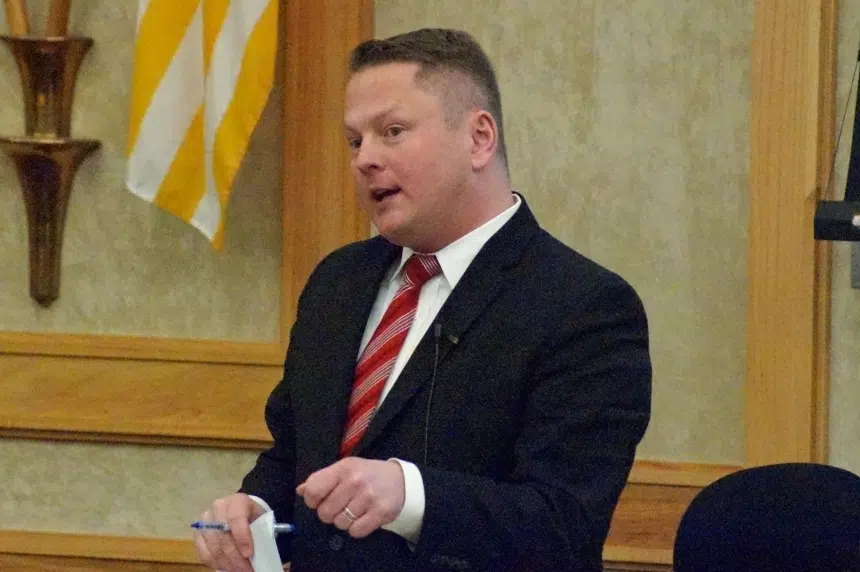Saskatoon’s waste utility debate isn’t settled yet.
City council voted 6-5 last week in favour of moving waste management off of property taxes and onto a monthly utility bill for homeowners, charging a fee based on how large a property’s garbage bin is.
However, the deciding vote has changed his mind.
Ward 1 Councillor Darren Hill issued a notice of motion at the end of 2019 budget discussions Tuesday night, indicating he’d like to return garbage collection to a property tax funding model.
“After reviewing some of the information and looking back at some of the components, I honestly believe that I made the wrong decision,” he told 650 CKOM Wednesday.
City councillors have a small window after a final vote on an item to issue a notice requesting a motion be rescinded.
Once “significant work” has been done by administration to enact a decision made by council, the decision can’t be changed for a full year.
Given the final vote came eight days before Hill’s notice, he’s within his rights to call for a re-do.
Hill said he’s encountered new information indicating how a garbage utility would disproportionately impact lower-income households compared to high earners since the bills would be a flat fee compared to percentages of assessed home values.
“We will be impacting the most marginalized group of our community with a utility,” he said.
He noted his change of mind isn’t a result of public backlash in the wake of the waste utility decision.
City staff first suggested moving waste management funding to a monthly utility because of a multi-million dollar funding gap in the service, which had led to the depletion of the reserve for landfill replacement.
Reports from administration have suggested keeping waste management on property taxes would require a 4.7 per cent increase to the mill rate — representing an $85.20 increase to the annual tax bill for the average house with an assessed value of $371,000.
That increase would be in addition to the 4.4 per cent increase decided by council in the 2019 budget deliberations this week.
Despite the eye-popping tax bill, Hill pointed out it would be a lesser cost for most compared to the minimum annual cost of the garbage utility — which would come in at $96 if a homeowner opted for the smallest bin.
A mandatory curbside organics program has also been approved by council in a separate measure, with funding originating from property taxes starting in 2020.
The veteran councillor suggested a better option would be to consider offering tax breaks for residents who choose to downsize their garbage bins or put their cart out for collection fewer times.
The new vote on the fate of the waste utility will be held at city council’s Dec. 17 meeting.











